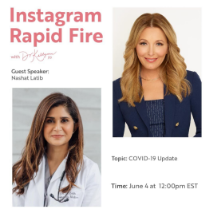The simple framework to ditch overwhelm & make small, manageable steps that catalyze exponential results.
Have you heard about the 80/20 rule?
Also known as the Pareto Principle, this “rule” states that 80% of results come from 20% of actions.
For example, in a professional setting, 80% of a company’s sales often come from about 20% of its customers. Identifying and focusing on those highest-value customers delivers the best impact.
For weight loss, 20% of foods people eat make up 80% of the calories consumed. Adjusting eating patterns for that key 20% is what drives the greatest success.
The 80/20 rule can also be applied to making lifestyle changes that reduce toxic load and promote fertility.
How to Use the 80/20 Rule to Maximize Fertility
Focus on the Biggest Dietary Offenders
About 20% of the foods and drinks in a typical modern diet make up the bulk of toxic exposures from pesticides, herbicides, additives, chemicals, and more. Pinpointing those top 20% of offenders in your current eating pattern and swapping them for cleaner options would drive 80% of the reduction in dietary toxins.
Here is a list of known inflammatory foods that can have a negative impact on fertility:
- Processed meats like bacon, sausage, and hot dogs – These toxic foods contain nitrites/nitrates that can damage sperm and egg health.
- Non-organic produce – Pesticide residues disrupt hormonal balance and reproduction. While you don’t necessarily need to eat organic for all foods, definitely choose organic for the fruits and veggies on the EWG’s annual “Dirty Dozen” list—especially if these are foods you eat often.
- Conventionally-raised dairy – Because growth hormones and antibiotics can interfere with menstrual cycles, it’s best to stick to organic, grass-fed sources.
- Soy products – Genetically-modified soy contains phytoestrogens that mimic estrogen in the body, potentially throwing off ovulation.
- Factory-farmed meat and eggs – These foods contain antibiotics and hormones tied to inflammation, hormonal dysfunction, and reproductive organ damage over time.
- Refined sugars – Rapid spikes in blood sugar wreak havoc on female fertility factors in particular by suppressing immune function and increasing inflammation, hampering your chances of pregnancy.
- Alcohol – Beer, wine, and spirits disrupt the delicate hormonal balance, egg quality, and cervical mucus production females need to successfully conceive. In males, alcohol inhibits testosterone production which affects sperm count and sperm quality.
In following the 80/20 rule, perhaps you decide to eliminate these foods from your diet, or choose alternatives—for example, almond milk instead of dairy in your morning coffee.
The more of these foods you can remove from your diet, the less toxic burden you’re likely to experience.
Optimize Key Lifestyle Factors
Rather than trying to overhaul your entire lifestyle at once, target improvements to a few vital elements known to strongly influence fertility: Sleep, stress, exercise, and environment.
Stress is a major cause of unexplained infertility.
High stress disrupts the hormones needed for ovulation and menstruation. Stress triggers the body to release cortisol and other chemicals that essentially hit the “pause button” on key reproductive hormones like estrogen and progesterone.
Salivary alpha-amylase (sAA) is an enzyme that can serve as a helpful biomarker related to fertility. sAA testing directly measures short and long-term stress levels through enzyme levels in saliva samples.
Studies have shown that as sAA spikes under stress, it mirrors fertility-blocking stress hormone surges happening internally. Tracking sAA output, along with ovulation timing, often shows clear correlations between stress peaks and subsequent ovulation delays or menstrual irregularities.
When stress is continuous and sAA is chronically elevated, it prevents the proper hormonal dance for fertility from taking place inside the body. Without enough reproductive hormones being released at ideal times, ovulation can be delayed or may not happen at all. Irregular or missed periods are the outward result.
Sleep and exercise are key factors in reducing stress, thereby improving fertility—but how much of each also matters.
For example, a 2022 study found that too much high intensity exercise paired with limited sleep (less than 7 hours), actually had a negative effect on fertility. Moderate daily exercise, plus 8 hours of sleep, appears to be the magic formula to increase your chances of pregnancy.
Additionally, many fertility experts say that living in a toxic environment plays a role in cases of unexplained infertility.
The good news is, there are simple ways to clean up your environment (particularly your air and exposure to chemicals) to reduce your toxic burden. This allows your body to spend less energy fighting inflammation and more time preparing for conception.
Start with the Simplest Sustainable Changes
One of the key benefits following the 80/20 rule offers is that it limits overwhelm.
Feeling overwhelmed often triggers our fight-flight-freeze response—creating more stress and exacerbating the problem. For many, overwhelm triggers the freeze response, paralyzing the person from taking any action whatsoever.
But with the 80/20 rule, you’re not trying to fix everything at once. You’re focusing on the handful of priorities that are likely to yield the greatest results. In this case, minimizing stress, reducing toxicity, and improving nutritional intake.
Making 5-10 small tweaks to your routine related to detoxing and self-care is more achievable than changing everything overnight. For instance, committing to dry brushing your skin just twice a week or taking brief tech breaks could better support detox pathways without overwhelm.
Many people report that once they break the freeze response by taking one small action, they create enough momentum to continually make subsequent changes.
Conclusion
As you steadily implement positive changes week-by-week, it builds confidence to take on additional upgrades. After several months of adopting healthier fertility-boosting habits using the 80/20 method, your diet, lifestyle, and inner/outer environment will have transformed.
The key with using the 80/20 rule for lifestyle changes is identifying and focusing efforts on just those top behaviors that will have an outsized impact on the end goal – in this case, minimizing toxic burden in order to boost fertility through incremental yet powerful shifts.








